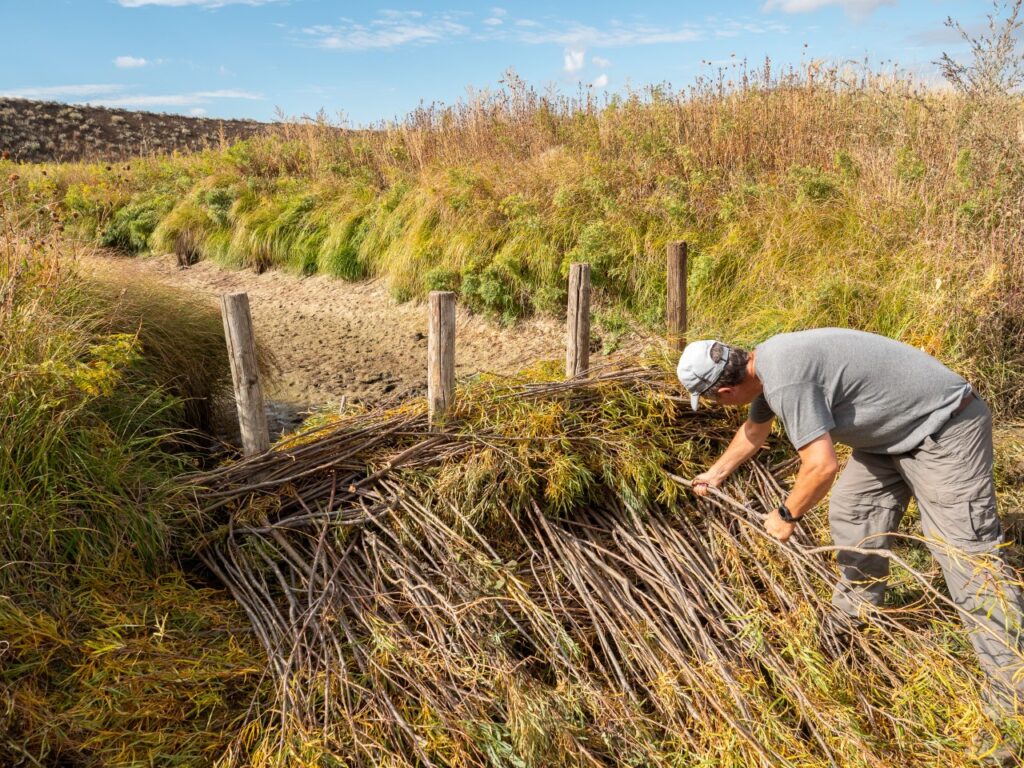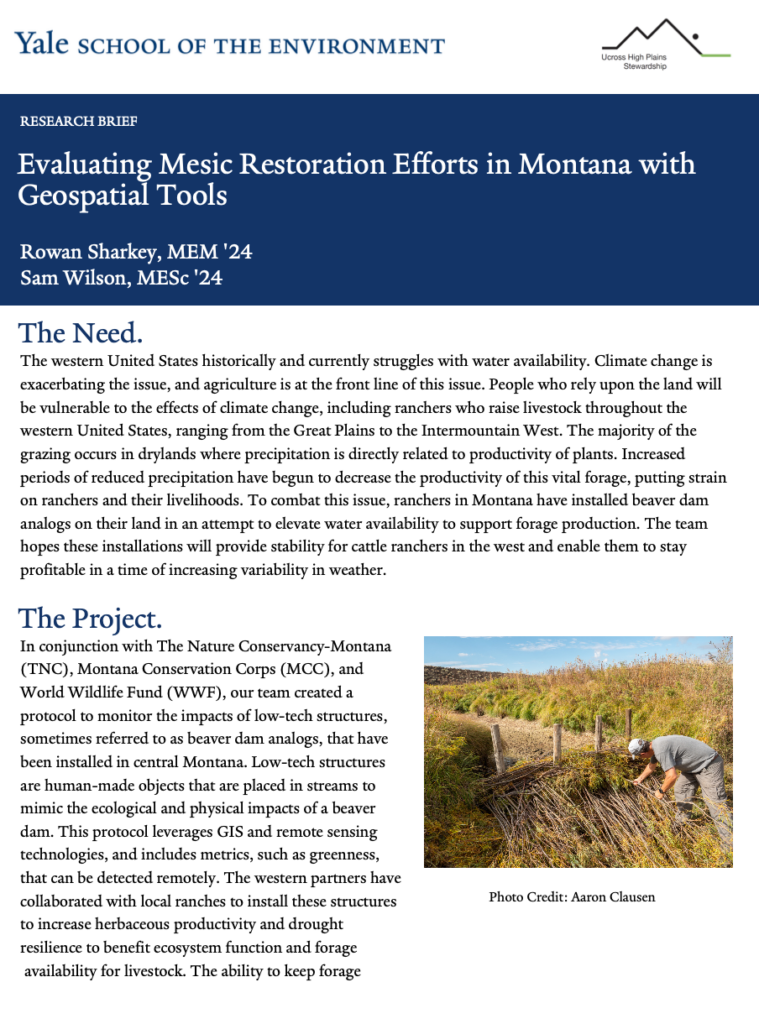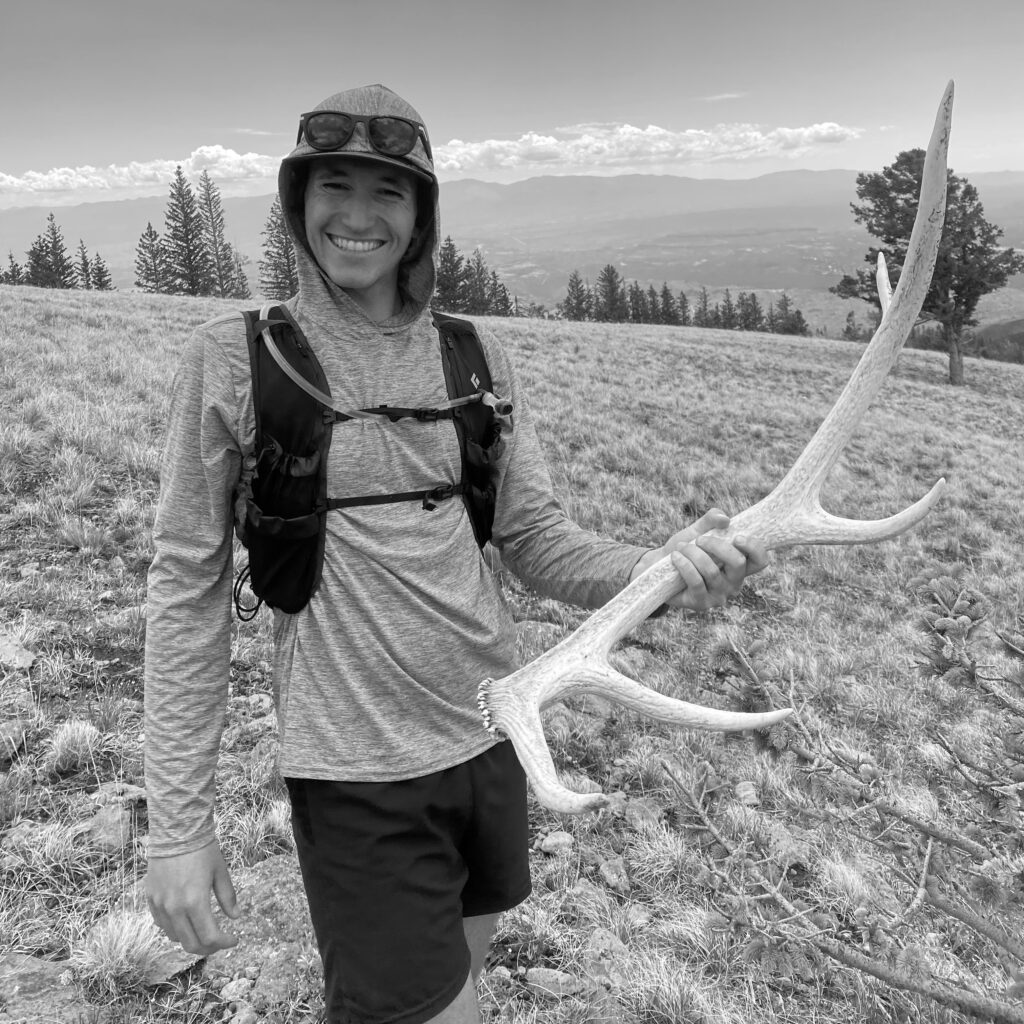
In conjunction with The Nature Conservancy-Montana (TNC), Montana Conservation Corps (MCC), and World Wildlife Fund (WWF), our team is creating a protocol to evaluate the impacts of low-tech structures, sometimes referred to as beaver dam analogs, that have been installed in central Montana. This protocol will leverage GIS and remote sensing technologies, challenging our team to identify metrics that can be detected remotely to aid in understanding the impact of these projects. Low-tech structures are human-made objects that are placed in streams to mimic the ecological and physical impacts of a beaver dam. The western partners have collaborated with local ranches to install these structures to increase herbaceous productivity and drought resilience to benefit ecosystem function and forage availability for livestock. The ability to keep forage production elevated through periods of drought is becoming more important as the frequency of extreme weather events increases. We will provide a user-friendly and cost-efficient method to understand the impacts of these structures across multiple years, providing insight into overall drought resilience in the area after installation. Through this research, we aim to accomplish an understanding of drought resilience as well as evaluate the effectiveness and practicality of this approach across the great plains for future utilization.
DELIVERABLE
Please visit this website to learn more and view a tutorial on how to use this tool.
RESEARCH BRIEF

COLLABORATORS
STUDENT RESEARCHERS

Sam Wilson, Research Assistant | Sam Wilson is a graduate student at Yale School of the Environment working towards a Masters in Environmental Science, focusing on using remote sensing, big data, and field work to analyze relationships in rangeland ecosystems. He received a B.S. in Geography from Montana State University in 2019 and spent the next few years living in Bozeman, Montana. While there summers were spent working in rangelands on a long term monitoring protocol with the BLM and winters were spent using satellite imagery to map wetlands for the National Wetlands Inventory. In his free time he enjoys skiing, hiking, reading, and learning! | Blog

Rowan Sharkey, Research Assistant | Rowan Sharkey, Research Assistant | Rowan Sharkey is a Masters of Environmental Management candidate at Yale School of the Environment, focusing specifically on ecosystem management and conservation. Having received her B.A. in Data Analytics and Environmental Studies at Denison University, her interest lies in environmental data analyzation, story telling, and communication. Prior to Yale, Rowan was a Princeton in Africa fellow, where she worked with regenerative agriculture and nutrition accessibility in Kenya. Growing up in rural Ohio, she holds a deep connection to the land and is curious about best management and restoration practices. | See what Rowan has been up to. | Blog
